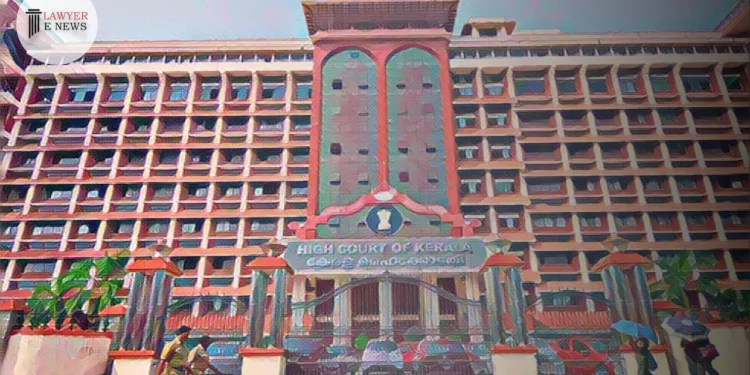Failure to Question Accused U/S 313 Cr.P.C Renders Proceedings Invalid: Sets Aside Convictions U/S 138 N.I. ACT: Kerala High Court

In a groundbreaking ruling, the Kerala High Court, presided over by The Honourable Mr. Justice C.S. Dias, delivered a judgment that has far-reaching implications for criminal proceedings. The court set aside convictions in two cases involving allegations of dishonored cheques u/s 138 N.I. Act , highlighting the failure to properly question the accused during the trial u/s 313 Cr.P.C.
The cases in question involved the common judgment in Crl.Appeal Nos. 685/2010 and 687/2010. The accused, Raju J. Vylattu, had been convicted under Section 138 of the Negotiable Instruments Act. However, the court found a significant procedural lapse during the trial – the failure to question the accused under Section 313(1)(b) of the Code of Criminal Procedure.
Justice Dias emphasized the importance of this examination, stating, “The salutary intention of the provision is to align with the principles of natural justice, specifically, the ‘audi alteram partem’ principle, which dictates that both sides must be heard; otherwise, the inculpatory materials and circumstances of the exhortation not put to the accused under Section 313 cannot be used against him.”
The judgment cited several precedents, including the 1963 Supreme Court case of Jai Dev v. State of Punjab, which stressed the importance of providing the accused with an opportunity to explain circumstances appearing against them in the evidence.
Furthermore, the court drew attention to the 1999 Supreme Court ruling in Janak Yadav and Others v. State of Bihar, where it was affirmed that the examination under Section 313 of the Code of Criminal Procedure is a procedural safeguard and an “indefeasible right of the accused.”
In light of these observations, Justice Dias concluded that the failure to question the accused under Section 313(1)(b) had resulted in a miscarriage of justice. Consequently, the court set aside the judgments of the lower courts and remitted the complaints to the Trial Court for proper questioning of the accused and fresh proceedings.
The accused, Raju J. Vylattu, and the first respondent have been directed to appear before the Trial Court on December 1, 2023. The court also issued directions for the expeditious disposal of the complaints.
This landmark decision underscores the critical importance of adhering to procedural safeguards in criminal trials, ensuring that accused individuals have a fair opportunity to present their case and explain the circumstances against them.
Date of Decision: 09 October 2023
RAJU J VYLATTU VS V. ALEXANDER





